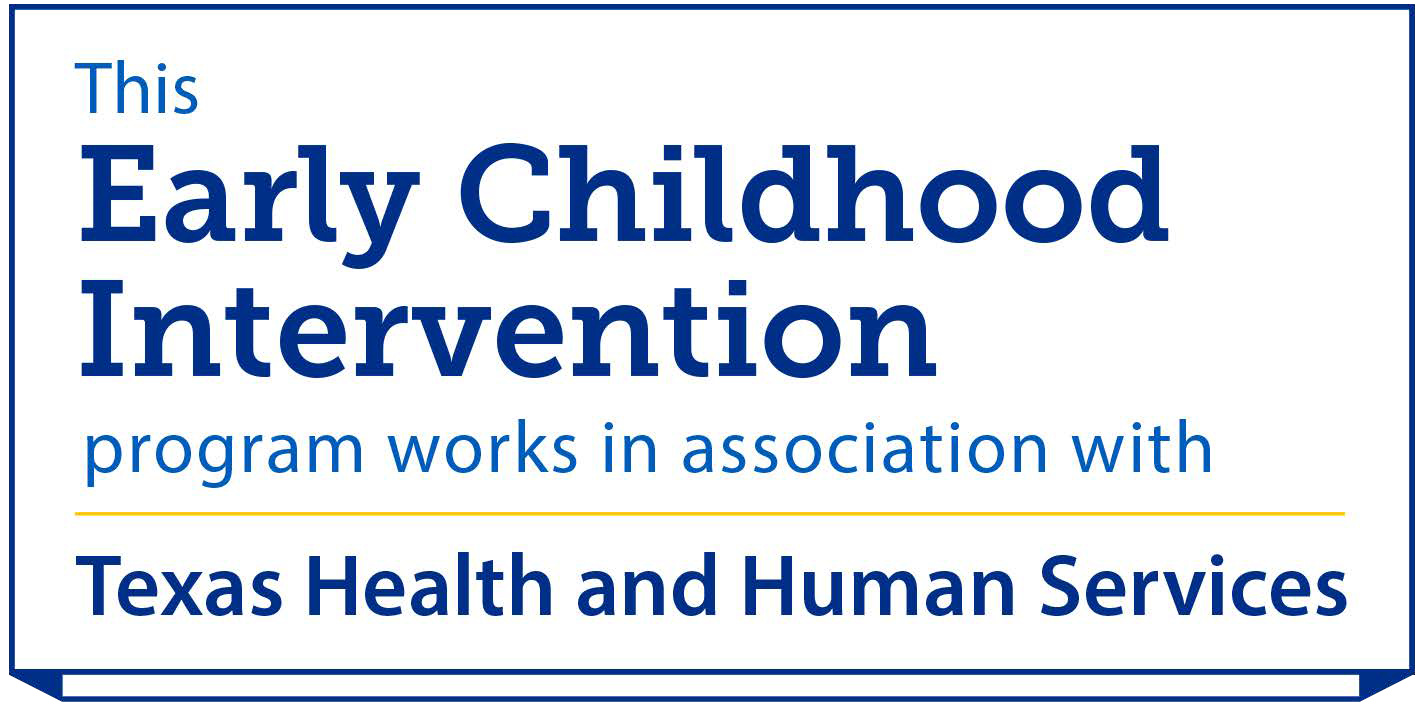Inform Your Patients
As a healthcare professional, families look to you for guidance regarding their children’s growth and development. ECI wants to work with you so families find the support and services they need as soon as a delay or disability is suspected.
Refer A Child to ECI
Anyone can refer a child to ECI. You can make a referral online or by calling our referral line at (915) 534-4324.
Downloads
Here are some helpful documents available for download:
Helpful Links
Additional resources and affiliates are listed below:
All referrals must be made in a timely manner
Federal Regulation CFR Sec. 303.303 of Title 34 (Education) requires primary referral sources to refer children under age three to ECI as soon as possible, but no longer than seven days of identifying a child with a delay or eligible medical diagnosis even if referred to an appropriate provider for further testing. If the client is 3 years of age or older, referral should be made to the local school district’s special education program. This regulation also specifies that all children who are the subject of a substantiated case of child abuse or neglect or who have been identified as being directly affected by illegal substance abuse or withdrawal symptoms resulting from prenatal drug exposure be referred by all primary referral sources. Referrals can be based on professional judgment or a family’s concern. A medical diagnosis or a confirmed developmental delay is not required for referrals. There is great value in referring a child early to ECI.
Primary referral sources held to this regulation are considered to be the following:
- Hospitals, including prenatal and postnatal facilities
- Physicians
- Parents, including parents of infants and toddlers
- Child care programs and early learning programs
- LEAs and schools
- Public health facilities
- Other public health or social service agencies
- Other clinics and health care providers
- Public agencies and staff in the child welfare system
- Homeless family shelters to include domestic violence shelter
Developmental surveillance or screening is a required component of every checkup for clients who are birth through 6 years of age. Autism screening is required at 18 months of age and again at 24 months of age. If not completed at 24 months of age, or if there is a particular concern it should be completed at 30 months of age. Referral for in-depth evaluation of development should be provided when parents express concern about their child’s development, regardless of scoring on a standardized development screening tool.
PCPs or medical homes (Texas Health Steps [THSteps] providers) must obtain a copy of the newborn hearing screening results and must review all results with the parent or caregiver at the first checkup to determine if any additional follow-up is necessary. Newborns who pass the newborn hearing screening must have their hearing monitored per the THSteps periodicity schedule. Newborns or infants not passing the outpatient rescreen must also be referred by the PCP or medical home to ECI for provision of services. Refer to the 1-3-6 TEHDI Practitioner’s Guide
The following are risk factors for hearing loss:
- Craniofacial anomalies
- Exchange transfusion for elevated bilirubin
- Family history of deafness
- NICU > 5 days
- Apgar 0-4 at 1 minute
- Apgar 0-6 at 5 minutes
- Bacterial meningitis
- Birth weight < 1500g
- Congenital infection
- Head injury
- Neurodegenerative disorder
- Other postnatal infection
- Otitis media > 3 months (middle ear infection)
- Ototoxic medications administered
- Parental concern regarding hearing status
- Persistent pulmonary hypertension of the newborn associated with mechanical ventilation
- Syndrome
Vision screening must be performed at each checkup. A visual acuity test must be performed at ages indicated on the periodicity schedule. All clients must be screened for eye abnormalities by history, observation, and physical exam and referred to a Medicaid-enrolled optometrist or ophthalmologist experienced with the pediatric population if at high risk.
The intent of this regulation is to ensure that every family which may need services have information about the availability of the government-funded program as soon as a delay or disability is identified. Timely referral can make all the difference in a child getting the services they need. For more information about Early Intervention Collaboration for Best Practices and Best Outcomes click here.
Did you know that:
- Early referral and timely intervention lead to more positive child and family outcomes.
- Making an early referral is consistent with recommended practices and the Individuals with Disabilities Education Act Part C regulations.
- A medical diagnosis or confirmed developmental delay is not necessary to refer to ECI.
- ECI Team members are trained to recognize very early indicators of atypical and delayed development. An ECI interdisciplinary team will conduct a comprehensive evaluation to determine eligibility, at no cost to families after a referral is made.
- Children who have vision deficits or who have failed the universal newborn hearing screen should also be referred to ECI for appropriate developmental follow-up.


